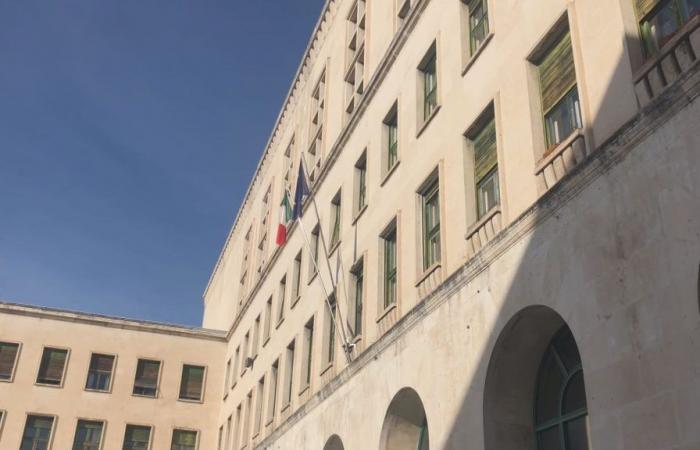9
The University of Trieste’s educational offering is being enriched. From the academic year 2024/2025, new courses will be activated two new master’s degrees characterised by a markedly international and professionalising perspective, entirely in English: Engineering for the energy transitione European Policies for digital, ecological and social transitionsboth aimed at training tomorrow’s professionals in digital, ecological, social and energy transition.
“Both master’s degrees deal with transition processes for which it is necessary to develop new models and professions – explains the Rector Roberto Di Leonarda – They are also multidisciplinary, because the ecological, energy and digital transition also requires a type of legal and political preparation. They train professionals with innovative specializations that are highly sought after by the world of work and are complementary, focusing respectively on the energy transition and its integrated governance at the European Union level”.
Engineering for the energy
Absolute novelty at international level in the form of an interclass path with the two curricula Sustainable building design and technology e Sustainable industrial systemsaims to offer advanced training in energy transition in both the construction and industrial fields.
Students will acquire design skills that are economically, environmentally and socially sustainable and will be able to choose the most suitable technologies, materials, sources and energy vectors. They will be able to integrate building and energy systems with electricity networks, storage systems and sustainable mobility.
The fields in which the new figure will be able to operate are different: freelance professionals and design studios operating in the sectors of construction, thermotechnics, energy efficiency, production systems and use of energy vectors and renewable energy sources; companies and public private bodies in the process of adapting building systems and plants; industries for the production and management of components, plants and energy systems; industries operating in the sector of the production of building envelopes; companies that design, install and manage systems using energy vectors in the industrial, commercial and residential sectors; companies that provide services in the energy field; companies and public or private bodies that are required to appoint an energy manager; research bodies that develop projects relating to the energy transition.
Energy storage devices represent one of the technologies enabling the transition towards renewable energy sources: to enrich the offer of the degree course Engineering for the energy transition Also ELISA, a laboratory to thisserving a multidisciplinary group of engineers, chemists, computer scientists, economists and social scientists. ELISA complements two existing laboratories at the University of Trieste, dedicated to “Photovoltaics” and “Smart Grid and Electric Mobility”, strategically increasing the university’s ability to position itself among the most active research institutions in the field of renewable sources and sustainable mobility. ELISA has innovative instrumentation and offers platforms for rapid prototyping and hardware-in-the-loop (HIL) simulations.
To access the course of study in Engineering for the energy transition at the Department of Engineering and Architecture the student must have one of the following qualifications: three-year degree in the Industrial or Civil and Environmental Engineering classes; alternatively, he/she must have acquired at least 18 credits in the mathematical area, 9 credits in the physics area, 6 credits in the chemistry area, 6 credits in the electrical area, 6 credits in the energy area, 6 credits in the civil area or in architecture – 15 where the student intends to enroll in the curriculum in Sustainable building design and technology. The student must also show a degree grade greater than or equal to 95/110, otherwise he/she will have to face an interview. The course also requires knowledge of the English language at a level at least equal to B2 in the Common European Framework of Reference.
European Policies for digital, ecological and social transitions
Active from next September, the course aims to provide future generations with a multidisciplinary training in governance of digital, ecological and social transitions.
Students, future civil servants in public administrations, project managers and consultants, will acquire advanced knowledge and skills in the analysis, management and evaluation of European policies, programmes and projects, together with in-depth thematic knowledge of the political, social and legal tools and mechanisms to govern, in an integrated manner, aspects related to environmental sustainability, the impacts of digital technology, social cohesion (e.g. comparative environmental and digital technology law, open data and big data analysis, participatory design techniques for sustainable and inclusive innovation). This combination of skills will make graduates of the Course capable of using the tools and resources of the European Union in the most effective way to govern digital, ecological and social transitions.
The requirements for access to the course of study are also specific. European Policies for digital, ecological and social transitions at the Department of Political and Social Sciences, the student must have one of the following qualifications: three-year degree in the classes of Political Science and International Relations, Administrative and Organizational Sciences, Economic Sciences, Social Sciences for Cooperation, Development and Peace; alternatively, the student must have acquired 24 total training credits in law, economics and statistics (at least 6 credits out of the 24 total), political sciences and sociology. The course also requires knowledge of the English language at a level at least equal to B2 in the Common European Framework of Reference.



